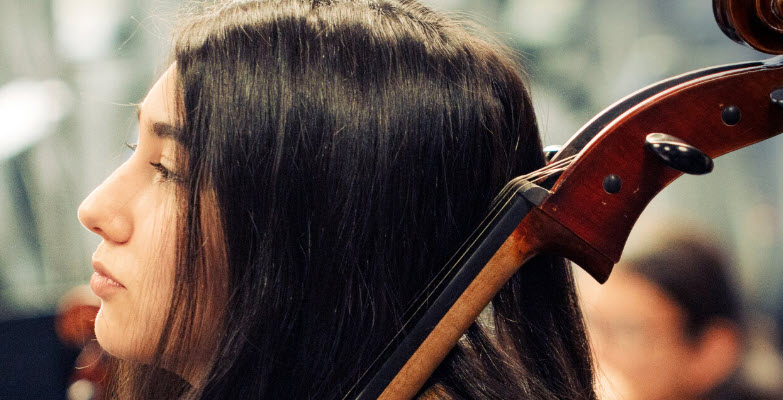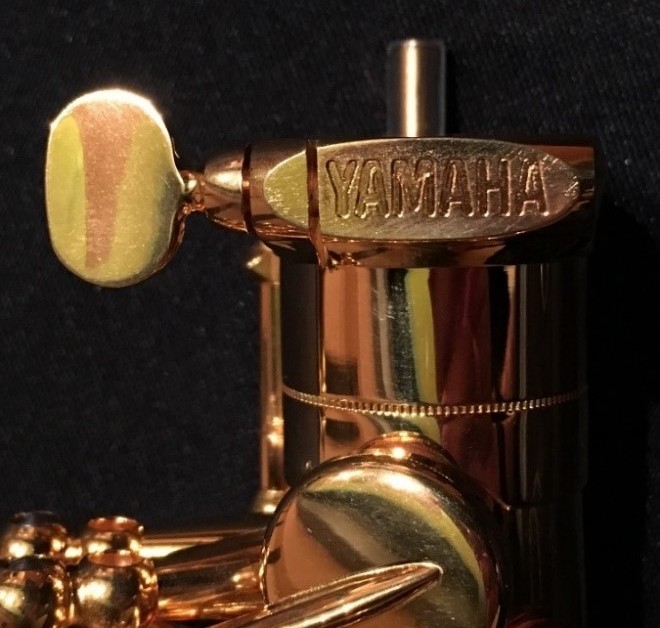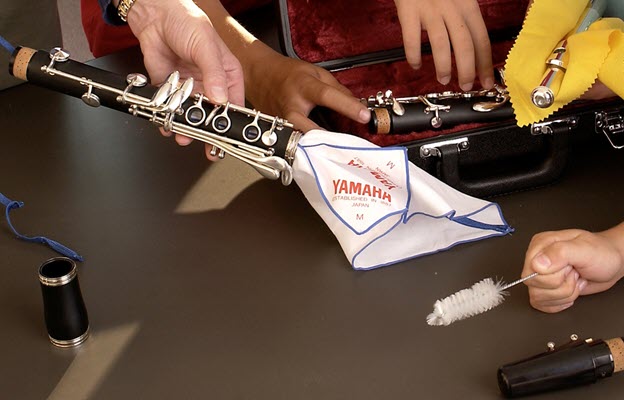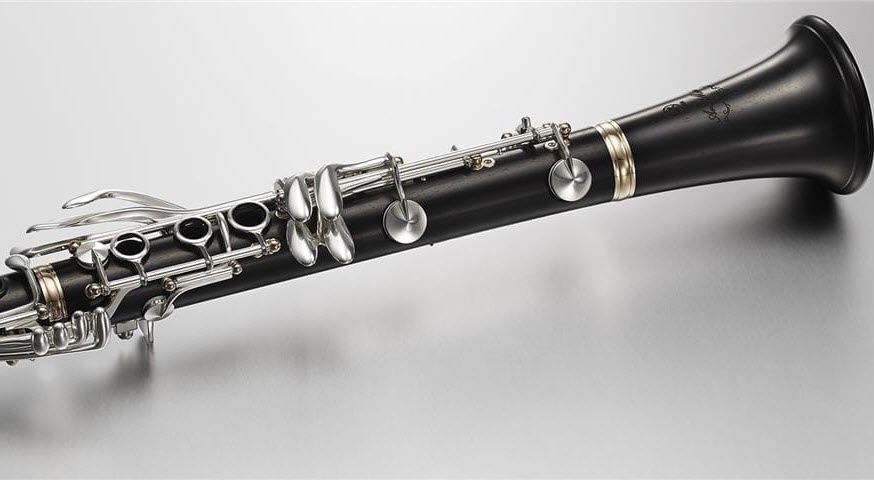Top Tips for Playing in Your First Band
Here’s what you need to know when joining your first band, orchestra or musical group.
Joining your first band is a momentous occasion! I should know; I joined mine some 15 years ago and it’s given me a great opportunity to learn new skills, meet people, make friends and have fun.
But while playing in a band can be exhilarating, it can also be daunting. There are plenty of responsibilities to consider, like finding time to practice, communicating with bandmates, studying music, contributing new ideas, and improving your technique. Whether it’s school orchestra, jazz band or ensemble, or just a bunch of friends that you want to share mutual musical interests with, here are some helpful tips to get things started right.
LISTEN CLOSELY
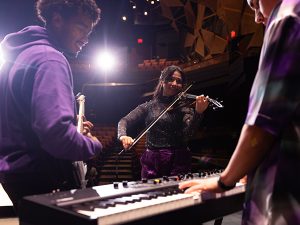
Respectful collaboration is about give-and-take. When you’re a member of a band, it’s as important to listen to what your fellow bandmates are doing as it is to offer your own musical ideas. Playing music with others is about blending together. It’s about creating something where the sum of the parts is greater than the individuals. To achieve this, you must listen closely to one another. A band achieves greatness in unison. Each member has their role in making the piece of music you’re playing come to life, in making the song sing.
BE VERSATILE … AND BE PREPARED
Being in a musical group means being prepared. This requires study at home, from listening to a lot of different kinds of music to practicing your instrument. While it’s expected for a heavy metal player to know how to play power chords, it’s an added bonus if they also know how to play a jazz scale or a hip-hop beat. Versatility adds value, so it’s important to prioritize developing it. This gives yourself, and your band, multiple paths to success.
TAKE ON A LEADERSHIP ROLE IF NECESSARY

Every band needs someone to set the tone, offer a vision and provide ways to execute it. But being a bandleader is a lot like being the president of the United States. You don’t do much unilaterally. You have a cabinet, constituents, people you listen to and trust. One day, you might have what seems like a good idea. But if the group isn’t on board, then you might have to adjust your strategy. Just as in collaboration, leadership requires lots of listening.
You may even need to take on the role of music director from time to time. For example, you may bring a new song or arrangement to the group. As the other players feel out their parts, you may offer advice on what works and what does not work. That’s fine, as long as you do so respectfully, but you need to be open to what others bring to the table too. You can push for a certain direction, but always make sure you keep an openness to other ideas. Consideration is the lifeblood of a band.
KEEP IMPROVING!
Being in a band is ultimately about improvement. No one is a finished product when they begin any endeavor, so it’s important to take risks and push yourself. The rehearsal room is the perfect place for this kind of work. Experiment, play around, feel free to be silly, try out odd cover tunes. It may seem scary at first, but it can also be the most rewarding part of being in a band. Let yourself be open to these experiences. That’s how you and the group will grow.
INDIVIDUAL INSTRUMENT TIPS
The above advice will help any musician get off on the right foot when playing in their first band, but here’s some specialized information for those playing particular instruments.
Winds: Trumpets, saxophones, trombones and flutes have long played a major role in myriad soul, blues, pop and rap songs. In those genres, wind instruments can act as either soloists or “backup singers,” providing everything from lilting lead melodies to rhythmic stabs. For that reason, it’s important for wind players to be able to both fit in and to lead at a moment’s notice. If you’re part of a wind section, it’s especially important to have your rhythmic chops down, as the whole idea is for the section to sound like one massive instrument, not a group of individual instruments.
Strings: The same holds true for string sections. Learn to follow your fellow violinists, violists, cellists and bassists. Again, the goal is to sound like one instrument. If you stick out here because you’re coming in early or late, or because you’re holding notes longer or shorter than the others in your ensemble, or because your tuning or intonation isn’t spot-on, you’re not being a team player.
Keyboards: For keyboard players, versatility is crucial. At any given moment, a song may call for twinkling melodies with the right hand or booming octaves with the left hand. (Or both at the same time!) You may be asked to play anything from rapid arpeggios to accentuating chords, or to open a song with operatic poise, or close it with rollicking barrelhouse. A lot is expected, so you must be a kind of musical chameleon.
Guitar: Guitar players should pride themselves on mastery of scales and tonalities just as much as they do on their agility and musical instincts. It may be tempting to show off your abilities, but it’s important for guitarists to be team players too. For example, if you’re playing electric guitar, keep those amp levels down so you don’t overpower your fellow bandmembers.
Bass: The bass player’s job is to bolster the rhythm and underpin the melody. But the trick is to do it subtly. The best basslines are often the ones that audiences feel as much as hear — the notes that hit in the gut. Paradoxically, though, this can make the bass line almost unnoticeable, like a ghost passing through. It’s a tricky balance, but one that can be maintained with a keen ear and an innate rhythmic sense that allows the bassist to lock in with the drummer. And as with guitar players, a bass player must be adept at scales too, since basslines depend on them.
Drums: Needless to say, when it comes to playing drums in a band, keeping accurate time is the top priority. But a sense of drama is also helpful. A drummer should always be looking for places to play tight, tasty fills or highlight musical accents with monumental cymbal crashes. While it’s true that if a drummer’s time falls apart, the band is sure to follow, it’s also true that if the drummer isn’t having fun, no one else will. So let the kit groove!
@yamahamusicusa Are you thinking like a pro musician?? #MusiciansOfTikTok #POVBand #BandPracticeTips #YamahaMusic ♬ original sound – Yamaha Music
Check out the full range of Yamaha musical instruments.












